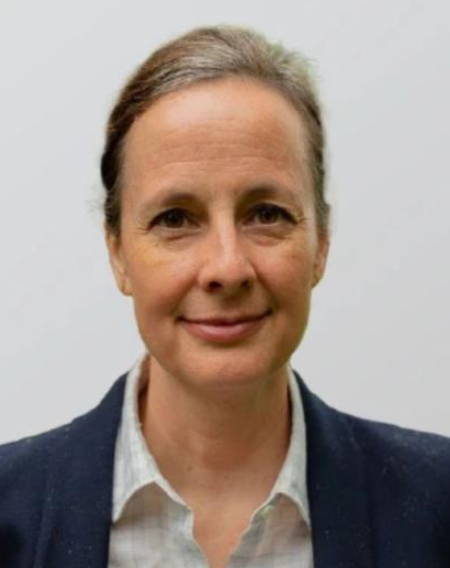WESF plays a role in promoting standardization and eliminating global trade barriers.
Katy Holdredge, the IECEx Vice-Chair, talks to e-tech about conformity assessment for the low-carbon hydrogen sector, the evolving scope of IECEx (the IEC System for Certification to Standards Relating to Equipment for Use in Explosive Atmospheres) and encouraging inclusivity in technical and regulatory fields.

What are the biggest challenges for standards in hydrogen production and storage, and how is IECEx working to address these?
IECEx has been issuing certificates under the Certified Equipment Scheme for products intended to be used in potentially explosive atmospheres, including hydrogen, for more than 20 years. We have a rigorous and transparent infrastructure in place to assess testing laboratories and certification bodies that easily accommodates the needs of the hydrogen industry.
As such, it is also well-poised to address evolving needs. One of the biggest challenges in the hydrogen industry is related to unclear, missing and different regulatory requirements. IECEx successfully worked with the United Nations Economic Commission for Europe (UNECE) many years ago to develop a common regulatory framework for equipment used in environments with an explosive atmosphere. In May 2025, the IECEx secretariat provided comments on a new UNECE draft common regulatory arrangement (CRA) of products for the transportation and handling of hydrogen and hydrogen blends to refer to the long-standing CRA dealing with explosive atmospheres. These CRAs can be used by national regulators to help the industry align conformity assessment procedures and standards across borders.
Can you describe upcoming IECEx initiatives aimed at further strengthening safety in low-carbon hydrogen projects?
One of our management committee working groups, which is responsible for the application of IECEx to the hydrogen economy, is on the case. The work of this group includes an update to the document which defines harmonized procedures for IECEx certification of equipment, components and systems associated with the production, dispensing and use of gaseous hydrogen. This update supports the recent publication of ISO 19880-2, which specifies dispensers and dispensing systems of gaseous hydrogen in fuelling stations. The group will also be considering any action needed due to standardization work going on within ISO/TC 197/SC 1: Hydrogen at scale and horizontal energy systems, and IEC TC 105: Fuel cell technologies.
If you take conformity assessment out of the industry equation, what are the risks?
If third-party conformity assessment is not used within industry, there are huge potential risks. Manufacturers and importers may not have sufficient expertise or resources to understand the potential ignition hazards associated with their equipment, which could lead to deadly explosions and significant property loss if not properly mitigated.
As industries shift toward more sustainable approaches, how does that influence the strategic vision of IECEx?
IECEx has proven through work in the hydrogen industry its ability to align strategy and resource priorities with market demand. We continue to collaborate with and learn from other conformity assessment schemes through representation on the IEC Conformity Assessment Board (CAB), particularly when it comes to the detection of new sustainable areas or technologies that may need global conformity assessment services now and in the future. We also take part in defining CAB global policy and strategy.
Sustainability is the theme of the upcoming IEC General Meeting in September. How do you see IECEx’s work evolving over the next decade to meet the demands of a greener economy?
IECEx will need to balance the needs of our existing manufacturers producing equipment in the fossil fuel economy with those companies developing innovative products under the electrification of everything. I fully expect IECEx will play a pivotal role in the safety of fuel cells in the marketplace, as well as considering the safety and security of products using artificial intelligence.
How has your experience as an engineer in the energy and industrial automation group at UL Solutions shaped your vision of conformity assessment?
UL Solutions has been a leader in the testing, inspection and certification industry for over 130 years and is focused on working for a safer world. I have been an engineer in the hazardous locations industry for over 28 years, and it drives my focus within IECEx, whether it involves consideration of requirements for new industries or the peer assessments of certification bodies or testing laboratories. My passion is to help make the global community safer.
IECEx operates in technical fields traditionally dominated by men. In your experience, have you seen a shift in gender inclusivity within IECEx?
There is definitely more awareness now than when I started participating in IECEx meetings 12 years ago. I think that is largely due to the UN’s 17 Sustainable Development Goals (SDGs) and work being done within standardization to increase women’s participation at all levels of standardization, and importantly, ensuring that standards reflect the needs of all genders.
What progress still needs to be made to encourage more women to pursue leadership in standardization and safety?
Mentorship is an important way of encouraging more women to pursue leadership roles. The United States National Committee (USNC) has done some fantastic work with its Young and Emerging Professionals (YEP) mentoring programme. I have been fortunate to act as a mentor in the programme for the past two years and would like to see more formal mentoring within the IEC, especially in conformity assessment.
What advice would you give to women aiming for leadership roles in technical and regulatory fields?
I would encourage women to take on new responsibilities even if they feel they aren’t experts. I got my start convening an IECEx working group I had just joined when another member unexpectedly had to go on leave. I found that there are lots of people within the IEC community to support you if you are curious, willing to ask questions and learn.